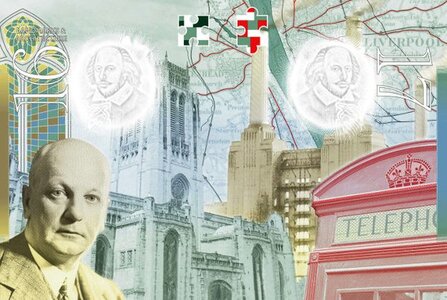10,000 signatures reached
To: James Brokenshire, Immigration Minister
New UK Passport Airbrushes Women From History

Redesign the new UK passport so it represents the equal contribution of women to British society, and therefore has an equal balance of gender.
Why is this important?
The new UK passport design supposedly celebrates the British 'cultural pantheon' but in 16 pages features only 2 women, despite finding plenty of space for men, as well as everyday objects such as the postage stamp and telephone box.
British history contains countless inspirational women such as Jane Austen, Emmeline Pankhurst, Charlotte Bronte, Barbara Hepworth, Elizabeth Garrett Anderson, Laura Ashley, Boudicca, Queen Elizabeth I, Elizabeth Fry, Florence Nightingale, Mary Wollstonecraft, Marie Stopes, Agatha Christie , Beatrix Potter, Maggie Smith and Amy Winehouse - and many, many more besides!
It is wrong that in 2015 men and women do not have equal representation on this important document - a document that will be in the hands of every man, woman and child for years to come.
We are constantly hearing about how we must encourage women and girls to become engineers, doctors, company directors and much much more, but this sends the message to our women and girls that their contribution to society does not count.
Is the contribution of inspirational women such as Emmeline Pankhurst or Jane Austen really not as important or interesting as a postage stamp or telephone box?
British history contains countless inspirational women such as Jane Austen, Emmeline Pankhurst, Charlotte Bronte, Barbara Hepworth, Elizabeth Garrett Anderson, Laura Ashley, Boudicca, Queen Elizabeth I, Elizabeth Fry, Florence Nightingale, Mary Wollstonecraft, Marie Stopes, Agatha Christie , Beatrix Potter, Maggie Smith and Amy Winehouse - and many, many more besides!
It is wrong that in 2015 men and women do not have equal representation on this important document - a document that will be in the hands of every man, woman and child for years to come.
We are constantly hearing about how we must encourage women and girls to become engineers, doctors, company directors and much much more, but this sends the message to our women and girls that their contribution to society does not count.
Is the contribution of inspirational women such as Emmeline Pankhurst or Jane Austen really not as important or interesting as a postage stamp or telephone box?

